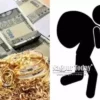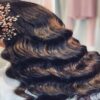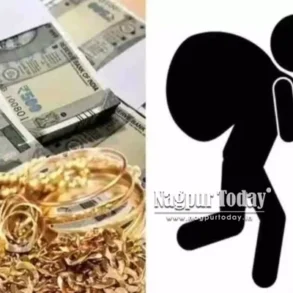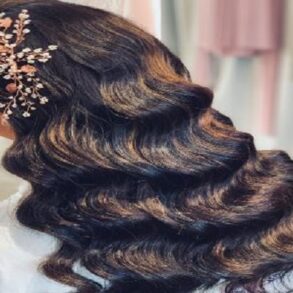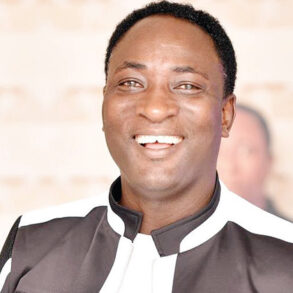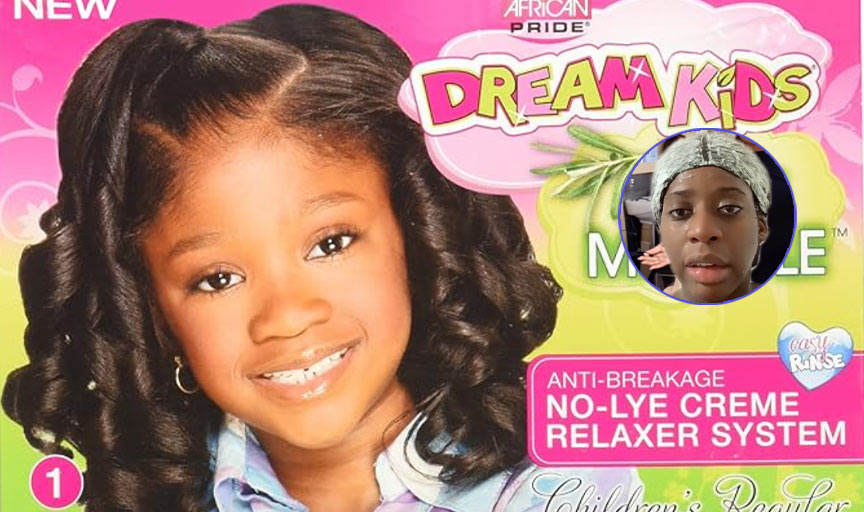
As I sit down to write this piece, I can’t help but cast a nostalgic glance back to the 90s, an era where Black and brown girls like myself traversed a haircare landscape akin to a barren desert. Oh, how we longed for an oasis of products catering to our unique needs, only to be met with tumbleweeds of neglect from the beauty industry. But, fear not dear reader, for we’ve come a long way from those dark days to a place where our coils and kinks are celebrated like the crown jewels they truly are.
Picture this: it’s 2024 in London, and you stumble upon a variety of afro hair products in every drugstore. The shelves overflow with an array of potions and lotions, each vying for your attention like eager suitors. This is the promised land, where black girl magic reigns supreme, and we are here for it.
But, rewind just a few decades, and you’ll find a starkly different scene. Back then, our options were as limited as a politician’s moral compass. The only beacon of hope amid the sea of mediocrity? The infamous African Pride hair relaxer, aka Dream Kid.
And oh, the process! It was a veritable odyssey of chemical cocktails and scalp sizzles that would make even the hardiest of souls quiver in fear. But we endured, desperately holding on to the images of the ‘relaxer girls’ adorning the boxes, their glossy tresses whispering promises of beauty and acceptance.
@4seechronicles Defo not ANTI-relaxer guys just bants xoxo #fyp #fyp #blackhair #blackgirls #4chair #4seechronicles #foryoupage #afro #comedy#afrohair #afrotexturedhair #blackwomen #blackgirlmagic #relaxer #cabelocrespo #crespa #crespo #brasil #angola #portugal #4chairchronicles #4seehairchronicles
♬ I Got 5 On It – Tethered Mix from US – Michael Abels & Luniz
Black girls like myself formed a parasocial bond with these relaxer girls, encountering them every few months, or years as we repeated the process. Like many relics of our childhoods, these figures faded into obscurity, until recently we were confronted with an unruly truth.
Fast forward to the present day, a single tweet ignited a wildfire of nostalgia and revelation as people delved into the backgrounds of the iconic faces from perm boxes, those symbols of our youth. As netizens online began to research these figures we grew up with, it became apparent that many of them never actually used relaxers, instead opting for mousse and press-outs to achieve their enviable locks.
where are these girls today? show yourselves. https://t.co/WHSaNHL6Me
— 𝐀𝐒𝐇 𝐋𝐄𝐎́𝐍 (@AshTheDonLeon) October 2, 2022
So, were they simply lying to us? It felt as though the rug had been pulled from under our feet as realised that trusting the promise of “Just Like Me” on the box, was a mistake. How silly, to interpret “no-lye conditioner” as no lie conditioner. It had always been this promise and sense of familiarity with the product that had helped me endure the burns to my scalp as layers of pungent creams and a potent mix of chemicals, strong enough to unclog drains, sunk into my hair.
One X, formerly a Twitter, user stated: “All right guys so now that we know that the perm box girls never perm [ed] their hair can we all collectively do a class action lawsuit??? My scalp was burned like holy hell when I used to get a relaxer.”
All right guys so now that we know that the perm box girls never perm their hair can we all collectively do a class action lawsuit??? My scalp was burned like holy hell when I used to get a relaxer…#permbox #permboxgirls #relaxer
— TandisChArm (@kookiesrealwife) October 8, 2022
Another user wrote: “It makes 100% sense but the girls on the relaxer boxes revealing they actually had unrelaxed hair that was just pressed or mousse for the photos has spun me.”
it makes 100% sense but the girls on the relaxer boxes revealing they actually had unrelaxed hair that was just pressed or mousse’d for the photos has spun me 😭
— no (@zedonarrival) October 4, 2022
So, who was pulling the strings behind the curtain of this haircare puppet show? None other than Brian K. Marks, a white man who made a fortune profiting off of the dreams of Black girls everywhere. At just 25 years old, Marks founded African Pride, a haircare company catering specifically to the African American community.
Marks’ business skills quickly garnered acclaim as the company achieved remarkable success. This later culminated in Marks’ being awarded the prestigious Ernst and Young Entrepreneur of the Year Award in 1996. So, if you ever find yourself scratching your head in wonder, you know who to thank.
In 2004, the entrepreneur grabbed the spotlight once again to introduce his brainchild Dr. Miracles, a new line of haircare products aimed towards women of colour. The name itself cheekily nodded to a fictional scientist offering miraculous solutions. And now Marks is the mastermind behind the hair brand My Israel’s Miracle, another haircare line that uses organic ingredients from Israel. Marks stated his inspiration for this new brand: “My Israel’s Miracle has to do with, yes, the passion I have for Israel, but also the fact that we want to keep the public informed on all of the great things about Israel.”
Amid the glittering success of all Marks’ business ventures, a sobering reality lurks beneath the surface—the cancerous connection that lies within those pungent potions. The chemical burns, and the acrid stench were not merely inconveniences, but silent harbingers of harm. It’s a wonder we emerged with our scalps intact, let alone our sanity.
@aprilbasi Whose team natural? 💇🏾♀️😅 #relaxer #relaxersareback #relaxerupdate #relaxerfreehair #relaxertouchup #relaxerstretch #relaxerqueen #skincaretiktok #skincareexpert #beautytok
@mrcrim3 🚨Real talk, this is one of the most important videos I’ve ever made! Did you know that Black women who have gotten hair relaxers from companies selling products such as Dark & Lovely, OS Olive Oil Relaxer, Just for Me, and African Pride, are twice as likely to get cancer??? 😦 I learned this recently while at the #naturalhairshow but was relieved to also find out that there’s a law firm working to bring about justice in this case with a FEDERAL lawsuit. 👇🏾 “On January 17, 2023, Lieff Cabraser and co-counsel at Equal Justice Society and Serna & Associates filed a federal injury lawsuit in California against L’Oreal, Softsheen, Dermoviva, and others for cancer allegedly caused by repeated use of hair relaxer products. The lawsuit brings claims arising from defendants’ negligent, willful, and wrongful conduct in connection with the design, development, manufacture, testing, packaging, promoting, marketing, distribution, labeling, and/or sale of the products known as Dark & Lovely, OS Olive Oil Relaxer, Just for Me, and African Pride.” They are also receiving assistance from the Honorable Judge Stephanie Jones who is the Founder & CEO of ‘Omega Daughter’. 🙏🏾 If you know someone who may have been impacted by this, send this to them ASAP and fill out the email list form in my b!0. If you have been impacted by these toxic chemicals, or have EVER used them to get a perm, please fill out the form on HairRelaxerCase.org (link in b!0 too). 🗣️ This is about awareness AND justice, so let’s get to it! ✊🏾 🚨SPREAD THE WORD! #hairrelaxer #perm #blackhistory #california #federal #lawsuit #cancer #cancersucks #cancerfighter #cancerawareness #hairstyle #justice #makethisgoviral #blackwomen #blackgirlmagic #blackgirls #africanamerican #darkandlovely #loreal #fyp #blacktiktok #whiteallies #hairsalon #beautyshop #cosmetology #juneteenth
In October 2022, a study conducted by the US National Institutes of Health (NIH) revealed that women who used hair relaxers more than four times a year faced an increased risk of uterine cancer. This study represented a significant moment, building upon over ten years of scientific investigation that has linked women’s exposure to certain chemicals, known as endocrine disruptors, with the occurrence of uterine and breast tumours.
SCREENSHOT sat down with one of the iconic figures from those memorable haircare boxes, Ariel Binns. I asked her to delve into her experiences working with some of the most renowned hair brands and also gather her thoughts on the evolution of Afro hair products today.
“I am currently a senior in college and a freelance model in NYC. Looking back on my diverse past modelling experiences brings back fond memories. From gracing the pages of Harper’s Bazaar alongside Tyra Banks to appearing on the stage of SNL, those years were filled with vibrant youth and endless opportunities,” Binns explained.
The model continued: “Reflecting on the legacy of Black hair products, I see a remarkable journey of progress. The shift towards more inclusive products for the natural hair community is truly noteworthy. However, amid this transformation, what truly stands out is the liberation of our mindset. It’s about embracing what feels most comfortable with our hair, rather than succumbing to fleeting trends dictating how we should feel or approach our haircare routines.”
Binns shares an important point, it’s clear that we’ve followed a path of remarkable progress and have seen an incredible evolution in Black hair products. Gone are the days of succumbing to fleeting trends dictating our haircare routines. Instead, we embrace what feels most authentic and comfortable for us. It’s a celebration of individuality and self-expression, where our hair becomes a canvas for creativity rather than a battlefield of conformity.
@angeliqu.a Replying to @Aria Fai my tips for MAXIMUM MOISTURE. Get into ittttt 💦 #retainmoisture #lowporosityhair #naturalhairtips #naturalhair #curlyhair #deepconditioning #hairproducts #naturalhairproducts
@_bjx_0 Protective style 90% of the time #fypシ #fyp #naturalhair #blacknaturalhair #hairtok #trim #hairtips #4chair #blackgirlmagic #blackgirlhair #afro
Tiffany Anderson, renowned as the first Black Natural Hair Trichologist (someone who studies the scalp and hair disorders) has pioneered a movement dedicated to empowering Black women to embrace and love their natural hair. Anderson’s journey began with a quest for knowledge, travelling across different states and attending various classes to learn about different techniques.
Through her dedication, Anderson discovered the transformative power of cream-based products for Black women’s natural hair, emphasising the importance of moisture retention and reframing the narrative around textured hair from “nappy” to “curly.” Since the early 2000s, the hair expert has solidified her position as a leading Natural Hair Care Specialist, celebrated for her unique techniques, creativity, and expertise. Anderson’s work has garnered recognition on prominent platforms such as Black Hollywood Live, The Talk, Curls Understood, and KRON’s Live in the Bay, earning her the title of “the leading natural hair expert.”
Anderson plans to continue her mission to educate and empower Black women through her groundbreaking hair care products and preventative services to address hair loss and restore natural hair.
So, here’s to the dreamer, the perm box girls, and the curly-haired crusaders. May we never forget where we came from, but always strive for a future where every curl is cherished and every kink is celebrated. After all, our hair is not just a crown, it’s a testament to our resilience and it invites us to explore and celebrate the beauty of our heritage.
This post was originally published on this site be sure to check out more of their content.

